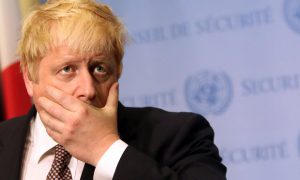
In November I will give a paper on the fallout of the EU referendum at the conference of OPUS (Organisation for Promoting Understanding of Society) entitled “The King is dead, there is now no king”. That’s a parody of the phase “The King is dead, Long live the King” which caught the sense of a monarchy trying to quell potential instability when a king died. The thinking is that the EU has been the containing structure for much of our political and national life for a long time: in voting for Brexit, people attacked that at a very basic level, which has been reflected in the political turmoil that has followed.
The other big idea for that paper is that we are now caught up a very complex response to globalistion. Our democracies are based on the idea that people live, work, and have most of their personal circle in one constituency, so voting for a particular MP to represent them makes sense. But in a globalised world we move around much more than that and are vastly more inter-connected, so the familiar systems are not working, but it is not clear how to replace them. Ironically, the EU seems a good starting point — depending on one’s perspectives it could be seen as a supra-national democracy, or a single market with democratic oversight.
The political shockwaves at the moment seem extraordinary: attempts at Brexit by the government seem at best chaotic, and the opposition is missing. It is truly shocking that proposals to remove the Human Rights Act have attracted little attention from Labour, caught up in a media frenzy over whether Jeremy Corbyn could find a seat on a train
We are still in the surreal space of not having a functioning opposition, so the deeply-dangerous idea of repealing the Human Rights Act has barely made waves because Labour have been embroiled in a squabble over Jeremy Corbyn’s difficulties finding a seat on a crowded train.
To underline the seriousness of the situation, Donald Trump is an absurdly dangerous Republican candidate for US president, and has support from Nigel Farage: the appeal to “ordinary people” would sound different if it didn’t have echoes of Hitler’s appeal when he was elected.
In another post Iˆve suggested there are chilling parallels with the 1930s. At the very least, the attacks on migrants now are reminiscent of the attacks on Jews in the 1930s: in both cases supported by extremists but expressed in language that seduces more moderate people, and in both cases unjustified.
This isn’t an exact re-run of the 1930s, but I keep thinking of what it was like for civilised Germans then. The EU was founded in the aftermath of World War II, to stop anything like that happening again. Turning our backs on it feeds some dangerous demons.
It feels to me as if we are caught up in a political re-alignment. I don’t know whether our familiar political and our familiar politics parties will survive. I write as a Liberal Democrat, but there are things here which are more important than the survival of any party. There’s an urgent need to hold and explore then Liberal, progressive centre ground. This is not about reversing Brexit on a whim, but is about being in touch with the internationalism that makes Brexit folly, and should encourage us to work with progressive voices in the EU seeking deepening and change — not least Guy Verhofstadt and the Alliance of Liberals and Democrats for Europe.
My sense is that a progressive, centre voice is needed if we are to come out of this with a civilised society. There are huge challenges: globalisation eroding national borders just as some demand then in reaction, massive economic re-alignment between the west and China, global warming probably leading to substantial migration. It needs some serous and clear thinking at the cutting edge of this to provide the ideas that offer a sane way forward.